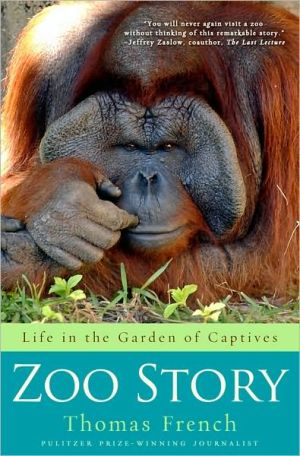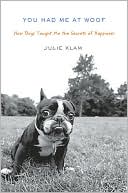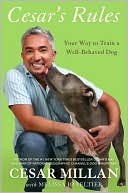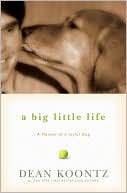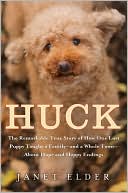Zoo Story: Life in the Garden of Captives
Welcome to the savage and surprising world of Zoo Story, an unprecedented account of the secret life of a zoo and its inhabitants, both animal and human. Based on six years of research, the book follows a handful of unforgettable characters at Tampa’s Lowry Park Zoo: an alpha chimp with a weakness for blondes, a ferocious tiger who revels in Obsession perfume, and a brilliant but tyrannical CEO known as El Diablo Blanco.\ Zoo Story crackles with issues of global urgency: the shadow of...
Search in google:
Pulitzer Prize-winning journalist Thomas French goes behind the scenes at one of the country's most popular—-and most controversial—-destinations: zoos. The Barnes & Noble Review . . .French [has done] a masterful job capturing the pleasure and regret that commingle at a zoo. "Zoos argue that they are fighting for the conservation of the Earth, that they educate the public and provide refuge and support for vanishing species. And they are right," he observes. "Animal-rights groups argue that zoos traffic in living creatures, exploiting them for financial gain and amusement. And they are right."
Contents Author's Note....................ix1 The New World....................12 The Audacity of Creation....................223 Night Delivery....................434 Siren Song....................565 Royalty....................726 Cold-Blooded....................937 Frontier....................1048 Berlin Boys....................1219 Mating....................13210 The Human Exhibit....................14311 City and Forest....................15912 Undertow....................17213 Freedom....................18114 Conspiracy Theory....................18915 Winning....................19816 Not Winning....................20917 Cull....................222Epilogue Dusk....................228Notes....................241Bibliography....................281
\ Publishers WeeklyPulitzer Prize-winning journalist French goes behind the scenes at Tampa's Lowry Park Zoo in this absorbing and balanced account that reveals extinction, conservation, and captivity issues in all their moral complexities and featuring a very memorable cast. The author introduces readers to Herman, the lovable species-confused chimpanzee who has reigned at Lowry Park for three decades; Enshalla, whose “family history was like a Greek tragedy,” and her mate Eric, Sumatran tigers whose attempts at mating captivate the zoo staff; Ladybug, the black bear who likes oranges and peanut butter; Lex Salisbury, the ambitious CEO who holds the fate of the zoo animals and humans in his hands; and the trainers who witness the circle of life and death among their charges. We are forced to reconsider our notions of freedom and captivity when presented with such scenarios as 11 partially sedated wild South African elephants being moved to U.S. zoos to escape slaughter at home. A thoughtful and moving but unsentimental portrait of life in captivity and a broad introduction to some of its most salient—and intractable—dilemmas. (July)\ \ \ \ \ Publishers WeeklyPulitzer Prize–winning journalist French goes behind the scenes at Tampa's Lowry Park Zoo in this absorbing and balanced account that reveals extinction, conservation, and captivity issues in all their moral complexities and featuring a very memorable cast. The author introduces readers to Herman, the lovable species-confused chimpanzee who has reigned at Lowry Park for three decades; Enshalla, whose “family history was like a Greek tragedy,” and her mate Eric, Sumatran tigers whose attempts at mating captivate the zoo staff; Ladybug, the black bear who likes oranges and peanut butter; Lex Salisbury, the ambitious CEO who holds the fate of the zoo animals and humans in his hands; and the trainers who witness the circle of life and death among their charges. We are forced to reconsider our notions of freedom and captivity when presented with such scenarios as 11 partially sedated wild South African elephants being moved to U.S. zoos to escape slaughter at home. A thoughtful and moving but unsentimental portrait of life in captivity and a broad introduction to some of its most salient—and intractable—dilemmas. (July)\ \ \ Library JournalPulitzer Prize-winning St. Petersburg Times journalist French delivers a knockout background look at the Lowry Park Zoo in Tampa. Drawing on his six years of in-depth reporting, he chronicles the rise of Lowry Park from one of the worst zoos in the country to one of the best. The story begins in August 2003 when 11 elephants are loaded on a plane in South Africa for a lengthy transatlantic flight; four of the pachyderms will be delivered to the Florida zoo. The brainchild of then-director Lex Salisbury, this years-in-the-making feature exhibit seemed impossible at times and was highly controversial. It was designed to bring in needed revenue, raise attendance, and focus public attention on the total reimagining of Lowry Park. French takes us back to earlier times, when the zoo was notorious for its poor design and animal care. Later, the zoo's notoriety centered on internal controversies ranging from personnel issues and morale to legitimate claims of conflicts of interest and mismanagement of funds. VERDICT This behind-the-scenes look will both entertain and enlighten animal lovers. It is a story that needs to be told, and French does it superbly.—Edell M. Schaefer, Brookfield P.L., WI\ \ \ \ \ Kirkus ReviewsAn in-depth look behind the gates of an American zoo. Former St. Petersburg Times Pulitzer Prize-winning reporter French (Journalism/Indiana Univ.) gained unusual access to zoo personnel to research this vivid account of the hidden workings of Tampa's Lowry Park Zoo during a tumultuous six-year period. Dwarfed by Busch Gardens and Disney's Animal Kingdom, Lowry was headed by CEO Lex Salisbury, an ambitious visionary with grandiose expansion plans. In the first of many sharply rendered scenes, French opens with the remarkable air-lifting of 11 wild elephants from Africa to the United States, where four of the awesome creatures served as the foundation for Lowry's planned five-acre "Safari Africa" area. The author describes animal-rights groups' vehement protests to the uprooting of the elephants from their Swaziland game reserve and the legitimate concerns of many specialists that American zoos are not properly equipped to care for the animals. Nonetheless, the elephants-immensely popular with zoo-goers-were certain to boost attendance and revenue at Lowry. French explores the clash at Lowry and other zoos between a mission to conserve animals and a desire to entertain people. The author recounts aspects of life at the city-owned facility: the deaths of its stellar residents, a beautiful tiger and a playful chimp; staff drills in how to return escaped animals to exhibits; a black-tie fundraising gala; and the growing turnover among dedicated zookeepers, who feel overworked and underpaid while Lowry officials pursue increasingly glitzy plans, including a 258-acre game park. In 2008, the mass escape of 15 monkeys from the site of the planned game park prompted a city audit of the relationship between the nonprofit zoo and the for-profit game park that eventually led to Salisbury's forced resignation amid charges of conflict of interest. Based on articles that appeared in the St. Petersburg Times, the book captures the fascination humans have with animals, and vice versa, and raises questions about the purpose and management of zoos. A well-constructed, colorful read for animal lovers. Agent: Jane Dystel/Dystel & Goderich\ \ \ \ \ From the Publisher"The book captures the fascination humans have with animals, and vice versa, and raises questions about the purpose and management of zoos." —-Kirkus Starred Review\ \ \ \ \ The Barnes & Noble ReviewZoo Story, a gripping behind-the-scenes look at Tampa's Lowry Park Zoo by Pulitzer Prize-winning journalist Thomas French, opens with a haunting account of the 2003 journey of eleven wild elephants from Swaziland to the United States. The logistics of separating the elephants from their herds, boarding them onto a 747, and transporting them to two zoos (seven were bound for San Diego, four for Lowry Park) were daunting. What's more, everyone involved with the transport was trying to keep it as quiet as possible: the sale of the elephants had stirred protests, with animal-rights activists trying desperately to block their importation. French, sober and even-handed, acknowledges that "making elephants fly across the ocean represented a fundamental inversion of the natural order" even as he notes that there simply isn't enough room for all of the elephants at the game reserve in Swaziland. Their voracious appetites are resulting in the deforestation of entire areas, which in turn threatens the birds that nest in trees and the other animals that depend on vegetation for food. The owners of the reserve tell French that they would rather sell some of their elephants to reputable zoos than control the population with the culls or organized hunts common in parts of Africa.\ French brings the same judiciousness to his exploration of the rest of Lowry Park, noting that "at the zoo, every day was another lesson on living in a world where there were no more pure choices." In elegant, occasionally lyrical prose, he presents the experience of the zoo from the perspective of the visitors, the overworked, underpaid employees, and, as much as possible, the animals themselves, particularly Herman, a gentle chimpanzee, and Enshalla, a regal Sumatran tiger. His fieldwork takes place during an auspicious time in the zoo's history.\ Lowry Park was among the worst of the "soul-killing" old-school zoos before it was torn down and rebuilt in the 1980s. By the time French arrives, the zoo is on a roll. It's being hailed for its efforts to preserve endangered Florida species like manatees and is voted the best zoo for kids in the nation; the Safari Africa exhibit built around the new elephants is a runaway success.\ But suddenly things go south. Poor Herman is killed during a violent confrontation with the other chimps. Enshalla escapes after an inexperienced keeper neglects to latch a door; in the "Code One" crisis that follows, the beautiful but aggressive cat is gunned down by the zoo's ambitious, charismatic CEO, Lex Salisbury. Soon after, Salisbury is embroiled in controversy over conflicts of interest between the zoo and a game park he's developing in Tampa. The end of the book, focusing on Salisbury's downfall, loses some of its wonder -- the political battle between merely human actors isn't nearly as compelling as the primal drama that has preceded it. But that's a small complaint.\ By then French has already done a masterful job capturing the pleasure and regret that commingle at a zoo. "Zoos argue that they are fighting for the conservation of the Earth, that they educate the public and provide refuge and support for vanishing species. And they are right," he observes. "Animal-rights groups argue that zoos traffic in living creatures, exploiting them for financial gain and amusement. And they are right."\ --Barbara Spindel\ \ \
